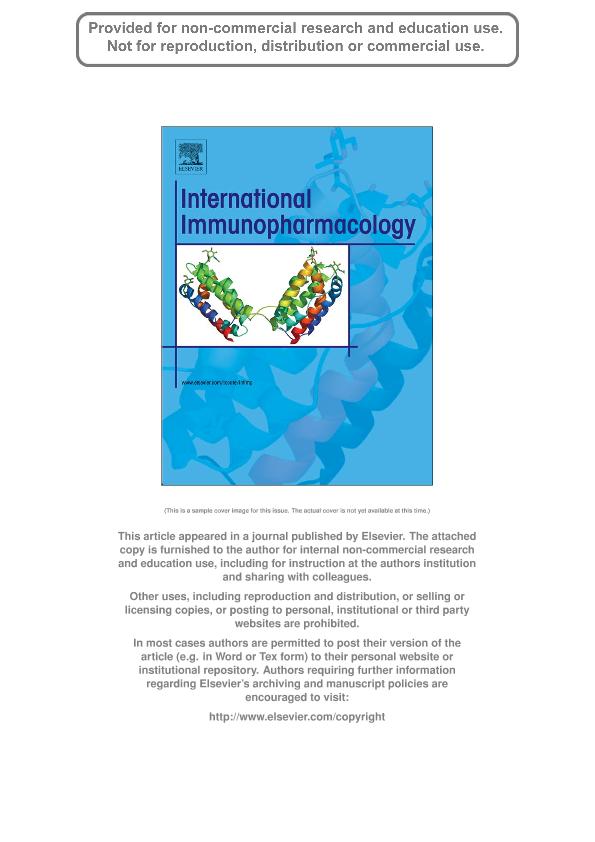Artículo
Pro-apoptotic effect of anti-β1-adrenergic receptor antibodies in periodontitis patients
Fecha de publicación:
12/2012
Editorial:
Elsevier Science
Revista:
International Immunopharmacology
ISSN:
1567-5769
Idioma:
Inglés
Tipo de recurso:
Artículo publicado
Clasificación temática:
Resumen
An anti-β1-adrenergic antibody from the sera of periodontitis patients (anti-β1-AR IgG) against the second extracellular loop of the human β1-adrenoceptor (β1-AR) has been shown to cause rat atria apoptosis. The anti-β1-AR IgG binds and activates atria β1-AR, increasing the intracellular calcium concentration, which, in turn, activates caspases-3, -8, and -9. The β1-AR and the post-receptor activation of calcium/calmodulin (CaM) lead to increased inducible nitric oxide synthase (iNOS) activity, with an increase in cyclic GMP (cGMP) accumulation as well as increased JNK phosphorylation and cyclic AMP (cAMP) production. We also observed an apoptotic effect of anti-β1-AR IgG, with increased generation of PGE2. Comparatively, xamoterol, an authentic β1-AR agonist, mimicked the autoantibody effect on rat atria β1-AR apoptosis. Our results suggest that autoantibodies from the sera of periodontitis patients bind and interact with rat atria β1-AR, provoking apoptosis. This implicates a series of modulatory cardiac signaling events that could alter normal heart function and may occur with chronic stimulation of the atria β1-AR, which could lead to heart failure. These results suggest an important link between periodontitis and cardiovascular disease.
Palabras clave:
Myocardium
,
Apoptosis
,
Prostaglandin
,
Cyclic Nucleotides
,
Caspase
,
Autoantibodies
Archivos asociados
Licencia
Identificadores
Colecciones
Articulos(OCA HOUSSAY)
Articulos de OFICINA DE COORDINACION ADMINISTRATIVA HOUSSAY
Articulos de OFICINA DE COORDINACION ADMINISTRATIVA HOUSSAY
Citación
Reina, Silvia Lorena; Ganzinelli, Sabrina Belen; Sterin, Leonor Josefina; Borda, Enri Santiago; Pro-apoptotic effect of anti-β1-adrenergic receptor antibodies in periodontitis patients; Elsevier Science; International Immunopharmacology; 14; 4; 12-2012; 710-721
Compartir
Altmétricas




